Echo of Boy
October 26, 2018My son hunches into the storm in his oversized coat
to collect fast offerings, a two-hour route
because the other mother’s sons stay in when it’s cold.
He is mine.
His wrists

My son hunches into the storm in his oversized coat
to collect fast offerings, a two-hour route
because the other mother’s sons stay in when it’s cold.
He is mine.
His wrists

-0- The grizzly, white-bearded weaver was as silent as the shadow of a ring-tailed civet cat—“reserved,” the folks in Pleasant Grove called the Russian. He did capable work making small throw rugs on a yew…

This is the most I’ve bled in a while,
blood blooms in the sink like a burnt offering.
It is hot today.
A forlorn train calls
through the open window.
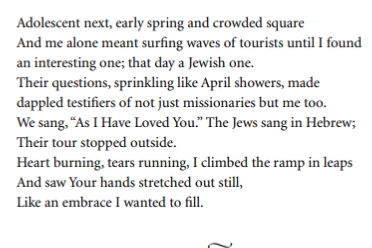
As a child first, the ramp was
forever. Walking, counting stars, planetgazing,
still walking; music playing, missionaries talking.
Your feet, eye-level, substantial and white, perfect
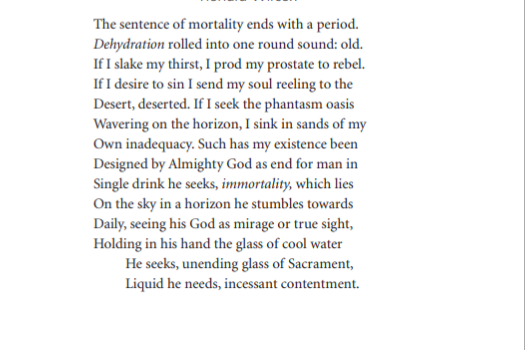
The sentence of mortality ends with a period.
Dehydration rolled into one round sound: old.
If I slake my thirst, I prod my prostate to rebel.
If I desire to sin I send my soul reeling to the
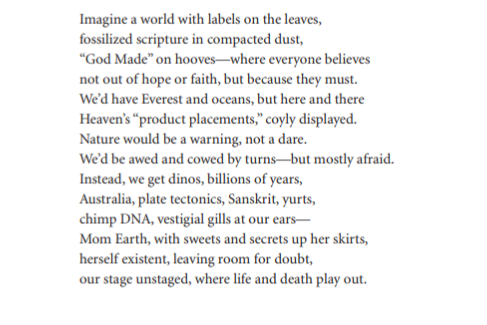
Imagine a world with labels on the leaves,
fossilized scripture in compacted dust,
“God Made” on hooves—where everyone believes
not out of hope or faith, but because they must.
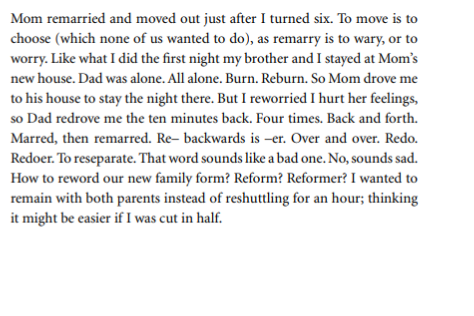
Mom remarried and moved out just after I turned six. To move is to
choose (which none of us wanted to do), as remarry is to wary, or to
worry. Like what I did the first night my brother and I stayed at Mom’s
new house. Dad was alone. All alone. Burn. Reburn. So Mom drove me
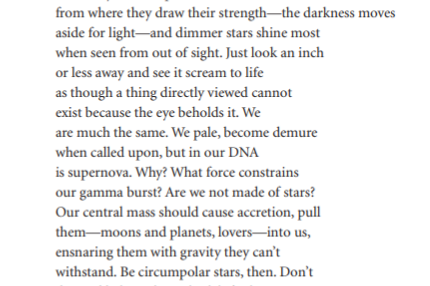
There are no streetlights where my cottage hides
within a forest. Nights there grant a cold
permission to the stars who drag along
their lazy arc. Away from manmade glare,

whatever I say I keep alive
keeping you you near
me to the point of me

My first pair of glasses had green plastic rims and Coke-bottle thick, anti-glare-coated lenses, which reflected green light. In every fourth grade photo, my eyes hid behind a glint of green flashing fire, but I did not care because when I slid the glasses on in the doctor’s office, the blurry rack of “For Sale” frames suddenly snapped into distinct lines and angles. I slipped the glasses off, then on again—watching the frames become blurry, then crisp again. Yet even knowing about the stunning change, I jerked to a stop outside the doctor’s office door, my mom and the trail of siblings piling up behind me. I stared at the trees across the street. Angular leaves fluttered in the breeze, avocado undersides distinct from their forest green tops.